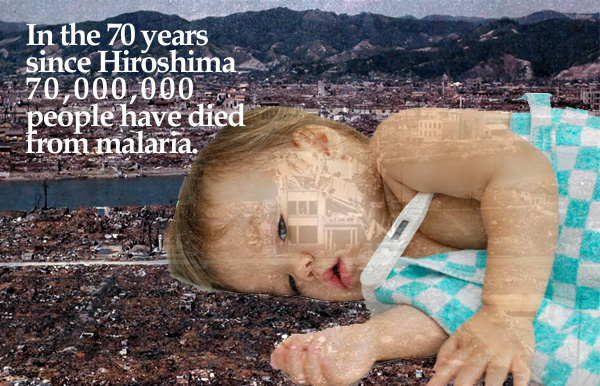 A breakthrough in eradicating the world’s worst and most onerous disease has set the scientific and conservation worlds into a maddened dither. Why on earth is everyone so concerned that the disease we’ve been fighting for centuries might at last found its master?
A breakthrough in eradicating the world’s worst and most onerous disease has set the scientific and conservation worlds into a maddened dither. Why on earth is everyone so concerned that the disease we’ve been fighting for centuries might at last found its master?
The research paper was so anticipated everyone was biting their lips waiting for Thursday midnight’s release: a group of scientists from the University of Maryland and government of Burkina Faso genetically engineered an air-born fungus, seemingly harmless to all things but malaria-carrying mosquitoes.
Floating onto one anopheles, the fungus triggers into superhero action penetrating deeply into the mosquito’s bloodstream and emitting a toxin genetically replicated from Australia’s deadly funnel-web spider.
Zap.
In carefully controlled experiments in high risk malaria areas in Africa an outstanding 99% of all the anopheles were killed in 45 days, effectively eradicating the bug.
When I was young boy pickups came down our street just before dawn emitting clouds and clouds of DDT. This is more or less the same scenario, but not with DDT, with this genetically engineered anopheles killer fungus.
And so why aren’t we jumping up and down for joy?
The third time I got bad malaria was last May. Although the incubation with me is pretty long because I’m 71, I know exactly where I got it, and why I did. I wish when it hit me that I’d been in Africa, because we all know what to do, there. It was a horrible circus at home getting the right treatment.
The attack was pretty bad, and although the cure is quick and painless my older body took a very long time to recover. It was almost as bad as the first time I got it, when I was 26, when I nearly died.
Malaria is not something you want to get. Half the world’s population is at risk of getting it; there are around 220 million cases annually; and more than 430,000 people are killed annually.
While it certainly isn’t the most deadly disease on the planet, it has the highest annualized mortality of them all.
So why aren’t we already blowing fungus all over the place?
Florida University entomologist recently told the BBC that mosquito eradication “is fraught with undesirable side effects.”
I held my anger as I listened to the good doctor explain the reasons that I knew he would. I didn’t have to be told that mosquitoes are part of the puzzle of earth’s ecology: that bats and birds need them for food; that the larvae are food for water creatures; that they are important pollinators.
Yes and yes and yes I know all that, but what about the 430,000 people who died last year, whose families were devastated?
I’m going beyond my own reasoning, because I’ve actually suffered malaria. It’s no hypothetical, and in fact I’ve even had worse experiences with malaria than suffering from it. I’ve watched babies die of it.
Calming down I understand the need for some more general studies. I realize we need to prove that eradicating mosquitoes will not be worse than nuking Hiroshima or spreading agent orange over Asia. I’m willing to be patient until a scientific study concludes there’s a better benefit from eradicating malaria than opening a hole in the ozone layer or suffocating the coral reefs with plastic.
What if we were to determine something grossly unlikely that eradicating mosquitoes would wipe out a quarter of the world’s avifauna. And that without the birds, the other insect population would explode. And with other insect populations exploding, that natural selection brings forth a new gnat that carries a malaria that is immune to the new technique. OK, then what?
Then what? That 6 or 7 million people were living productive and useful lives who would otherwise be dead?
Man has trashed the earth mostly with his greed and megalomania. It’s time we revere our fellow man. A cure is on hand. It’s inhumane, no it’s anti-human to hold it back.